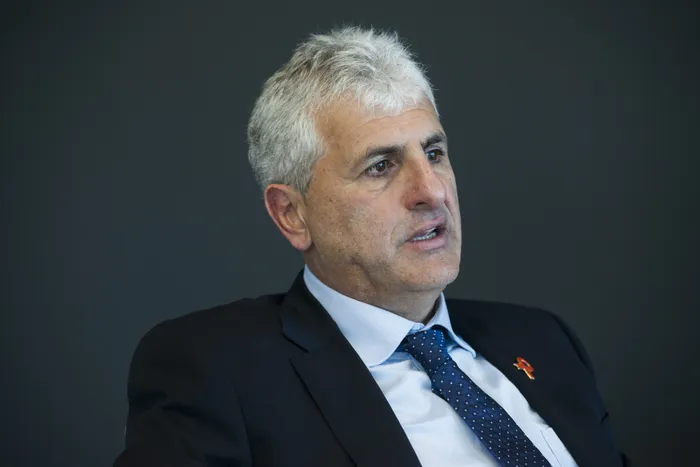Aspen's Commercial Pharmaceuticals sees promising growth amid restructuring efforts
Parmaceuticals

Stephen Saad, chief executive of Aspen Pharmacare Holdings.
Image: Waldo Swiegers/Bloomberg
Aspen Pharmacare Holdings delivered a commendable performance in its Commercial Pharmaceuticals division, reporting a 10% increase in normalised earnings before interest, tax, depreciation, and amortisation (EBITDA) for the year 2025.
This growth is primarily attributed to robust advancements in their injectables, over-the-counter (OTC), and prescription drug segments. The division, which accounts for over 70% of group revenue, has experienced a resurgence bolstered by the rollout of Mounjaro in South Africa and the integration of an acquired product portfolio in Latin America.
Despite this positive trajectory, Aspen faced challenges stemming from the appreciation of the rand against its major trading currencies, which diluted overall earnings. The company also announced a dividend declaration of 211 cents per share, which represents a significant drop of 41.2% from the previous year’s 359 cents.
This decrease may come as a disappointment to investors as the firm navigates through competitive market conditions.
The firm is making strides in executing its generic semaglutide GLP-1 strategy, which includes sterile injectable products aimed at treating type 2 diabetes and obesity.
Stephen Saad, Aspen’s chief executive, remarked on the sustained momentum within the Commercial Pharmaceuticals sector, emphasising the strong foundation for future growth stemming from organic advances and the promising results from their investment in the GLP-1 strategy.
However, it has not all been smooth sailing for Aspen. The Manufacturing segment faced a challenging year, particularly due to the loss of a significant contract, which necessitated a strategic overhaul to recapture lost profitability by the 2027 financial year.
Saad acknowledged the pressing need for improved free cash flow generation, which will be supported by reduced capital expenditures and a more judicious approach to working capital investment.
Furthermore, the second half of 2025 saw Aspen incur restructuring costs amounting to R500 million, in addition to R300m attributed to one-off inventory rationalisation and write-offs. These factors collectively contributed to a dip in the gross profit margin percentage for the Injectables division.
On a more positive note, the restructuring of Aspen's China business, which has now integrated the acquired Sandoz business, is anticipated to positively influence earnings growth in the upcoming 2026 financial year, supported by enhanced EBITDA margins.
However, the company is still grappling with the ramifications of a material contractual dispute related to mRNA products, currently in adjudication, which has adversely affected normalised EBITDA from the manufacturing business, yielding only R7m— a stark 38% of the previous year’s performance.
With the validation stage for an insulin contract completed at their South African sterile facility, Aspen has commenced commercial production in anticipation of forthcoming regulatory approvals. Notably, a long-term distribution and promotional agreement was recently finalised with Boehringer Ingelheim, enhancing Aspen's product portfolio distribution in South Africa, effective from September 1, 2025.
Looking ahead, Aspen's operational strategies include restructuring its French and South African sterile facilities to align resources with existing contracts, a move expected to yield increased revenue and cost reductions by the latter half of the 2026 fiscal year.
Additional opportunities on the horizon involve securing regulatory approval from authorities for Serum paediatric vaccines, which could pave the way for sales commencing in 2026, as well as ramping up GLP-1 injectable production volumes and securing more contracts within the sterilised facilities in both South Africa and France.
BUSINESS REPORT